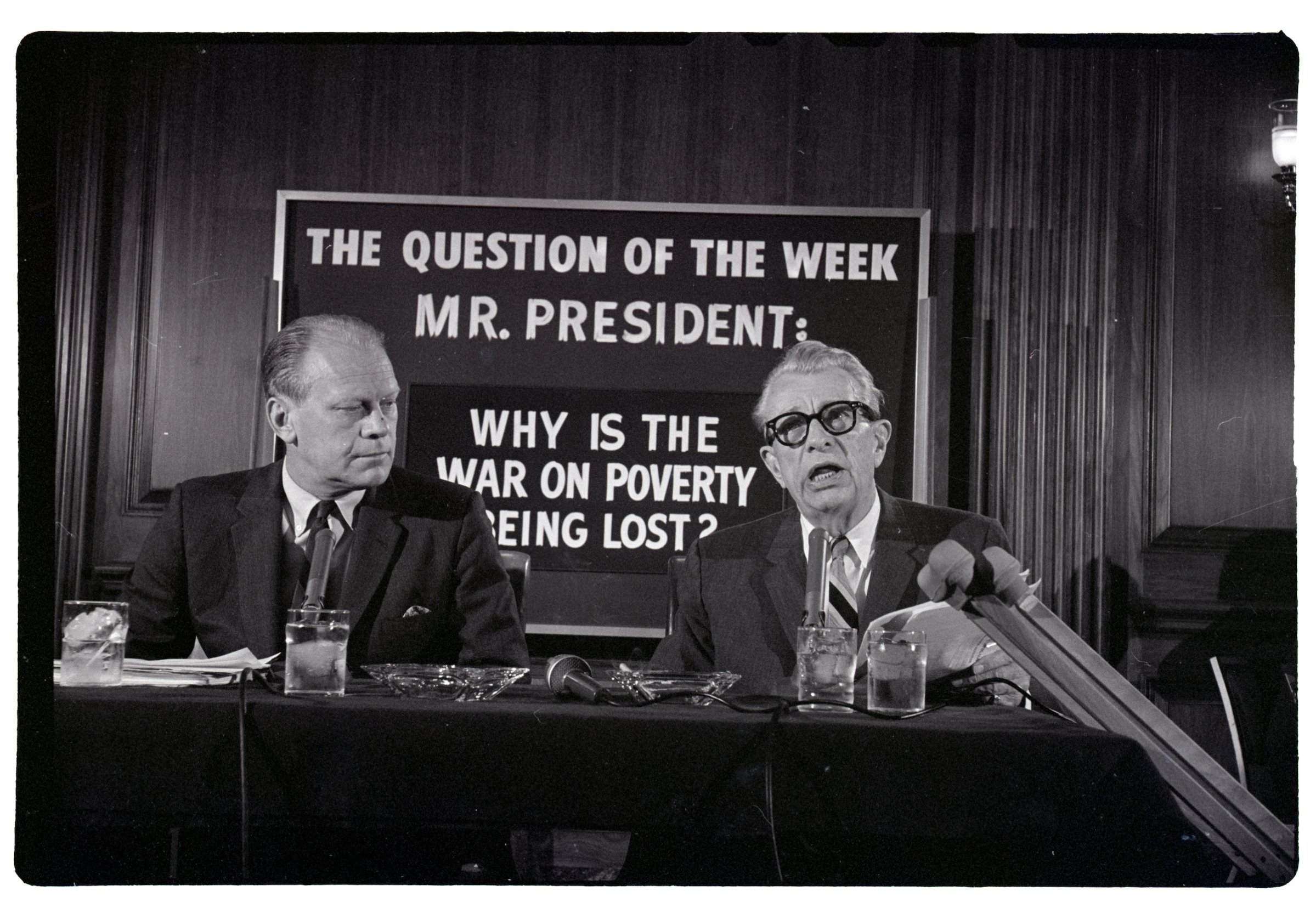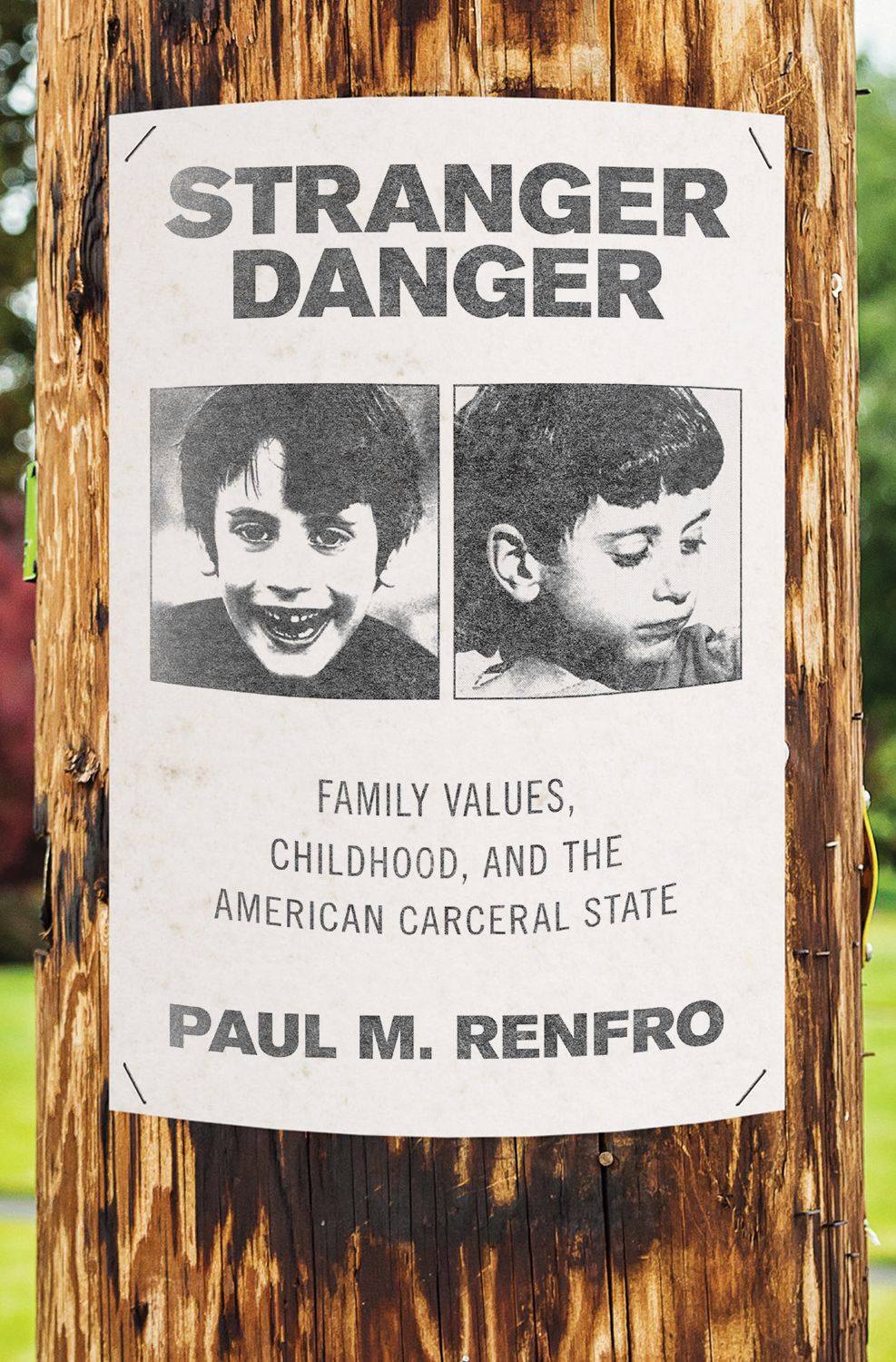
When President Donald Trump declared a national emergency last month, as the coronavirus outbreak worsened, he deployed language familiar and perhaps oddly comforting to many Americans. Designating himself “a wartime president,” Trump likened the country’s COVID-19 response to the U.S.’s mobilization during World War II. “Every generation of Americans has been called to make shared sacrifices for the good of the nation,” Trump insisted.
This rhetorical maneuver reflected the long American history of declaring “war” on any conceivable enemy — whether physical, abstract, domestic or foreign. But as familiar and ubiquitous as war might be for many Americans, at least figuratively, that same history also shows that it is a poor framework through which to understand complex social problems such as poverty and public-health emergencies like the novel coronavirus or drug addiction.
War has been a permanent condition and the governing metaphor for American life since at least the Second World War. Instead of reining in its military and defense infrastructure at the end of the war — and the beginning of what is ironically known as the “postwar” period — the U.S. opted to go in the opposite direction, bolstering the national security state in the hopes of thwarting the perceived Soviet and Communist threat. A massive expansion of federal power, the National Security Act of 1947 formed the skeleton of our modern national defense apparatus. The Act established the Central Intelligence Agency and the National Security Council (NSC), a cabinet-level body that would help formulate military and foreign policy on the president’s behalf.
Get your history fix in one place: sign up for the weekly TIME History newsletter
Drafted and circulated in 1950, the council’s NSC-68 report cast the young Cold War in stark, severe terms. It declared “that the cold war is in fact a real war in which the survival of the free world is at stake” and argued that Americans must be willing to “give up some of the benefits which they have come to associate with their freedoms.” In other words, though World War II had ended in victory, Americans would continue seeing the world through a wartime lens — and indefinitely so.
In many ways, the assumptions underlying NSC-68 would guide U.S. foreign policy through the end of the Cold War and beyond. Even after the collapse of the Soviet Union and thus the end of the Cold War, the U.S. — “[f]reed from major challengers” — remained committed to military action, although it often couched these interventions in terms of “human rights.”
It is therefore no surprise that Americans have long understood challenges far from the battlefield (such as COVID-19) through the lens of war. Beyond the actual experience of war as combat, as historian Michael Sherry has shown, the United States’ obsession with war has meant “imagining many things in terms of it” — from President Lyndon B. Johnson depicting incidents of urban unrest as “a war within our own boundaries” to President Richard Nixon declaring a “war on cancer” in 1971 (as the Vietnam War raged), from LBJ’s War on Poverty to Pat Buchanan’s “war for the soul of America” (i.e., the culture wars) to the interlocking “wars” on crime and drugs. The band Wilco lamented this “war” fetish in their 2001 song “War on War,” in which frontman Jeff Tweedy sings that, in such a conflict, “You’re gonna lose.”
“Americans know war,” theologian Stanley Hauerwas notes, and when we “are frightened … ironically war makes us feel safe.” Michael Sherry concurs — building on the work of the late historian Marilyn B. Young — when he calls the United States “a nation deeply wedded to and defined by war, though maddeningly reluctant to admit it.”
Still, real war remains distant and abstract for the overwhelming majority of Americans. As scholar Andrew Bacevich indicated in 2011, “approximately half of 1 percent of our citizens bear the burden of service and sacrifice” — meaning 99.5% of Americans are not personally attached to the military or the national security state. The physical and emotional distance separating most Americans from the battlefield allows them to glorify war while knowing nothing of its unspeakable horrors or the sacrifice it entails.
War is destructive, violent and annihilative. But the nation’s commitment to war (both as reality and metaphor) has a tendency to take other policy approaches off the table. What has been called the “troopification of everything” generates financial and political support for any activity conducted under the umbrella of “war.” And so America’s over-reliance on the blunt, imprecise instrument of war hinders its ability to respond to myriad other problems, from public-health emergencies to chronic issues such as hunger. The infrastructure needed to address such concerns doesn’t mesh well with “war.” Its use as a rhetorical and framing device within our present crisis therefore represents a dismal failure of imagination.
Most damningly, perhaps, America’s recent wars — whether directed at targets physical, abstract, domestic or foreign — have mostly failed. “The United States excels at war,” Sherry observes, “though no longer at winning it.” In just the past 50 years or so, the U.S. has failed to win the War in Vietnam, the war on cancer (despite many notable achievements in research and treatment), the War on Poverty (although LBJ’s campaign slashed poverty rates), the war on crime (which did much to terrorize and imprison poor and working-class black and brown people but little to actually curtail crime), the war on drugs (given the persistent reality of drug addiction) and the seemingly endless global war on terror.
This track record does not bode well for the nation’s “war” against COVID-19. We need an efficient, coherent public-health response coordinated by a competent federal government. What we don’t need is another “war.”

Paul M. Renfro is an Assistant Professor of History at Florida State University and the author of Stranger Danger: Family Values, Childhood, and the American Carceral State (Oxford University Press, 2020).
More Must-Reads From TIME
- The 100 Most Influential People of 2024
- Coco Gauff Is Playing for Herself Now
- Scenes From Pro-Palestinian Encampments Across U.S. Universities
- 6 Compliments That Land Every Time
- If You're Dating Right Now , You're Brave: Column
- The AI That Could Heal a Divided Internet
- Fallout Is a Brilliant Model for the Future of Video Game Adaptations
- Want Weekly Recs on What to Watch, Read, and More? Sign Up for Worth Your Time
Contact us at letters@time.com